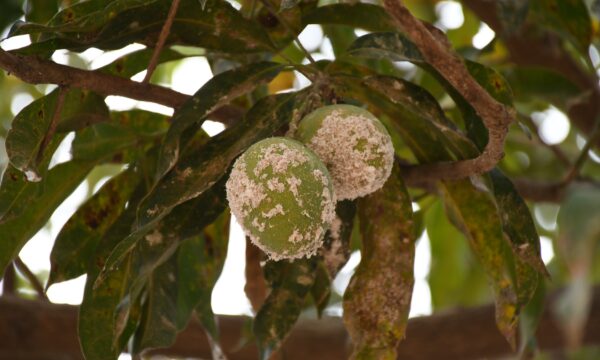
Orange fleshed sweet potatoes are aiding the battle against vitamin A deficiency © Llez (CC BY-SA 3.0)
A variety of sweet potato has been shown to decrease childhood blindness, when eaten regularly. The variety, called Orange Sweet Potato (OSP), provides higher levels of β- Carotene (the precursor the body uses to produce Vitamin A) than its white and yellow counterparts.
The less β- Carotene rich white and yellow fleshed varieties are typical of eastern Africa, where the Vitamin A in people’s diet is largely insufficient. Vitamin A deficiency (VAD) is estimated to affect 28% of children and 23% of women in Uganda. Uganda was therefore used as one of the locations for this study, along with Mozambique. The OSP variety was initially distributed to 24 000 farming households by the non-governmental organisation HarvestPlus, who are hoping to increase this to 225 000 in Uganda alone by 2016. Uptake of the OSP variety was high (61-69%) and most of these farmers were found to be women, who were subsequently able to feed the produce to their children.
The vitamin A status among children in the area was monitored throughout the 2 year introduction of OSP, the results of which have recently been published by the Journal of Nutrition. The study has shown that consumption of OSP has reduced Vitamin A deficiency among young children (6-35 months) and women, improving their Vitamin A status.
As well as the biofortification of OSP for high β- Carotene production, the variety was bred for drought resistance and high yields. What is surprising to many is that the OSP was developed using traditional plant breeding, and wasn’t artificially fortified via genetic modification. This has meant it has been approved faster and is welcomed much more readily by farmers.
The success story of the Orange Sweet Potato means that many farming households in Uganda now have a greatly reduced risk of blindness and fatalities resulting from inadequate Vitamin A intakes.
2 Comments
Leave a Reply
Related News & Blogs
‘Sowing the seeds’ for food security in Uganda: CABI supports training for Quality Declared Seed production
CABI has been working with Zirobwe Agali-Awamu Agribusiness Training Association (ZAABTA), the Ministry of Agriculture, Animal Industry and Fisheries (MAAIF), the National Agricultural Research Organisation (NARO), and Integrated Seed Sector Developmen…
21 May 2025





Nigeria are opting for a similar approach to improve Vitamin A in people’s diet, but here they’re using maize. The maize has been developed in a similar way to the OSP, and like the OSP is resistant to the common crop diseases of the area. More can be found on this story here.
Reblogged this on African Seed Network.